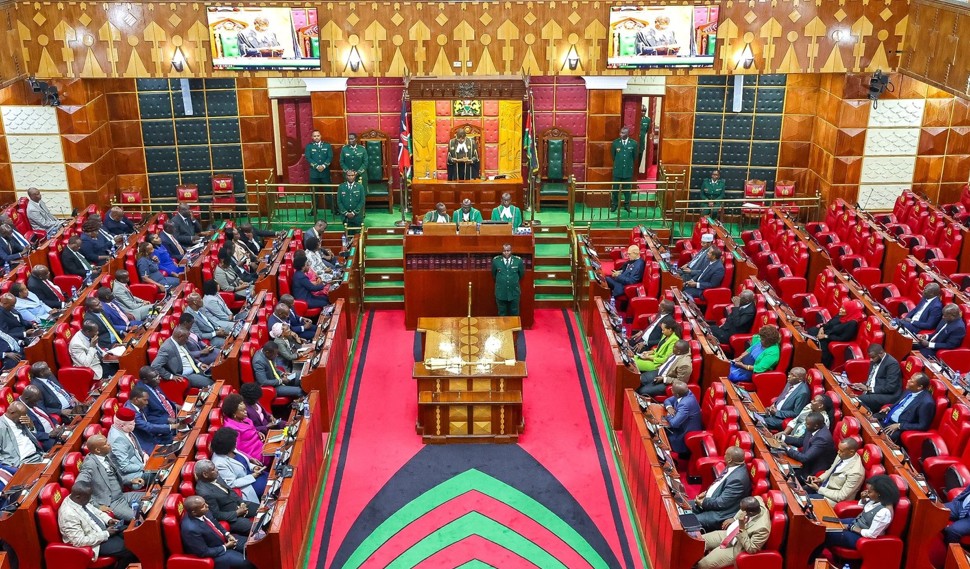MPs demand special audit of NEMIS citing suspected student data manipulation

The legislators have since directed the Office of the Auditor General to conduct a special audit of the system, which is used to manage learner enrolment data and guide the annual allocation of capitation for free primary and secondary education.
Members of Parliament have called for a special audit of the National Education Management Information System (NEMIS), citing data inconsistencies, suspected manipulation, and a lack of reliable learner numbers that are key to determining capitation funds in public schools.
The National Assembly Public Accounts Committee lamented that the integrity of NEMIS has been compromised by technical flaws and poor data management, resulting in situations where learners’ details reportedly disappear from the system overnight, leading to the misallocation or non-disbursement of government funding to schools.
More To Read
- No layoffs for civil servants as Treasury unveils new payroll control system
- How Grade 10 learners will be placed in senior schools using eight-point assessment system
- How to check school your child has been placed in before release of KJSEA results
- Education Ministry closes 10 ‘ghost’ schools as audit finds 6,000 under-enrolled institutions
- Govt announces measures to resume learning in universities after 49-day lecturers' strike
- Tunza Mtoto Coalition demands full disclosure of ghost student audit findings
The legislators have since directed the Office of the Auditor General to conduct a special audit of the system, which is used to manage learner enrolment data and guide the annual allocation of capitation for free primary and secondary education.
While reviewing the Auditor General’s report for the 2022/2023 financial year, the committee noted that capitation funds were unconfirmed due to NEMIS’s failure to provide continuous updates on disbursed amounts. The report also questioned the credibility of learner figures provided by the Ministry of Education.
Disclosures by the State Department for Basic Education revealed that the current data on learners cannot be fully trusted. According to the department, loopholes in NEMIS have allowed manipulation by institutions and third parties, including cybercafe operators.
“So, we noticed that our schools shared their credentials to the system with many others, either teachers or cyber cafe attendants and some of the cases we have handled,” Head of the Kenya Education Management Information System (KEMIS) Fredrick Muchumba said.
“We have noticed that some of these learners have been deleted from various points, just not necessarily at the school level. You get even some cases where a cyber cafe has removed learners because they were not paid for the work that they did.”
Funyula MP Wilberforce Oundo questioned whether the Ministry of Education currently knows the actual number of learners in public schools, given the unreliability of the primary data source.
“It would then seem that at this particular moment in time, the State Department does not know the number of learners in our schools. It would seem so. Because if NEMIS is the primary data, we do not know with precision the number of learners in school,” Oundo said.
He also raised concerns over the lack of documentation on NEMIS’s development, including copyright details, system architecture and technical manuals.
Mathioya MP Edwin Mugo said the Ministry’s transition to a new system would not solve the underlying issues unless a comprehensive audit of NEMIS is conducted.
“A comprehensive system audit on NEMIS needs to be done, so that we can be able to answer some of the queries we are asking. Was it handled internally? What was bought? How much was spent on the update? Which features were updated? How are the roles assigned to the different users?” he posed.
Turkana Central MP Joseph Emathe stressed the urgency of concluding the special audit, citing persistent claims of unknown individuals manipulating learner data to deprive schools of capitation.
Lugari MP Nabii Nabwera questioned the system’s effectiveness, stating that long-standing complaints by schools have largely gone unresolved.
“If you asked teachers and principals, they would say scrap NEMIS. You close the school with 300 students in the evening. By morning, the system shows 100,” Nabwera said.
Butere MP Tindi Mwale, who chairs the committee, said the audit must be finalised before the Ministry transitions to the KEMIS, which is expected to correct existing flaws.
“The Auditor General must go back and do a proper analysis: how much was spent, who did the upgrades, and whether the system logs are reliable. That’s in our report,” Mwale added.
Basic Education PS Julius Bitok maintained that the ministry has accurate data on learners, which it verifies monthly using both digital systems and manual reports from sub-county and county offices.
“We have 6.4 million learners in primary school, 2.9 million in junior school, and 3.3 million in senior school — a total of 12.6 million. We verify these numbers monthly through sub-county and county education offices,” Bitok said.
He added that the Ministry is upgrading from NEMIS 3.0 to KEMIS 4.0, following recommendations from the Presidential Working Party on Education Reforms, and that the new system is designed to improve data accuracy and integrity.
He noted that the ministry is working with the government ICT agency CONSA to supervise the upgrade, and has initiated requests to the Attorney General and Treasury for clearance under special procurement guidelines.
The Director of KEMIS admitted that NEMIS suffered from poor hosting infrastructure and lacked interoperability. He said the upgrade would include stronger identity verification and external data management to prevent future manipulation.
“We need a solution that protects data from third-party interference. That’s why we are building KEMIS with secure identity verification and outsourced data management,” the director said.
Top Stories Today












































